Search
 News
News
UCSF Health’s Eric Small, MD, Elected ASCO President for 2025-2026 Term
The American Society of Clinical Oncology (ASCO) has elected Eric J. Small, MD, FASCO, to serve as its president for the term beginning in June 2025. News
News
UCSF Research Vital to First Drug for Deadly Bone Disease
The U.S. Food and Drug Administration (FDA) recently approved palovarotene (Sohonos) as the first treatment for fibrodysplasia ossifcans progressiva (FOP), a severely disabling condition that causes abnormal bone formation in place of soft and connective tissues. Video
Video
Unconscious Bias in Patient Care: Harms and Paths to Healing
While physicians intend to treat all their patients with equal respect and compassion, studies show that favoritism and other implicit attitudes can emerge, especially in times of stress, affecting medical decisions and care quality. Video
Video
Streamline Your Approach to Carpal Tunnel Syndrome: An Expert on Diagnostic Tactics and Effective Care
In just 20 minutes, orthopedic surgeon Lauren Shapiro, MD, MS, presents what clinicians need to know to identify CTS, from symptoms to simple in-office strength and screening tests, providing criteria for when to pursue electrodiagnostic studies.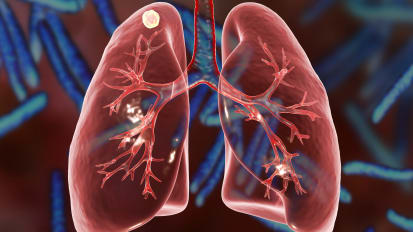 Video
Video
Better Management of Lung Nodules: Cutting-Edge Diagnostic and Therapeutic Tools
Interventional pulmonologist Diana H. Yu, MD – who performed the first robotic bronchoscopy at UCSF – presents the case for more aggressive lung screening in California and throughout the country, then offers an exciting look at the latest ultrasound and robotic techniques for detecting lesions, assessing risk of malignancy and performing biopsies.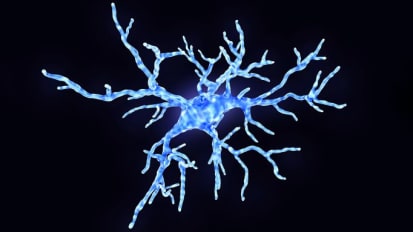 News
News
Researchers Identify New Glucose Control Target That Could Lead to Novel Therapeutic Approaches
A 2017 study co-led by UCSF researchers found that a high-fat diet (HFD) is associated with the accumulation of inflammatory cells called microglia in the hypothalamus, which in turn increases the susceptibility of mice to overeat and gain excess weight.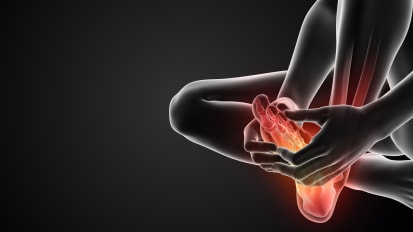 News
News
Telehealth Referral Leads to Diagnosis and Effective Treatment of Rare Neuropathy: Case Study
A 68-year-old man from Hawaii with acetylcholine receptor (AChR) antibody–positive myasthenia gravis and poorly controlled type 2 diabetes complicated by neuropathy had been receiving intravenous immunoglobulin (IVIg) and taking pyridostigmine for two years when ... News
News
Why Do Some Long Covid Patients Continue to Have Difficulty Exercising?
While some patients recover from the effects of SARS-CoV-2 infection, others have experienced the aftereffects of COVID-19 long after the initial infection. One of these long COVID symptoms is reduced exercise capacity.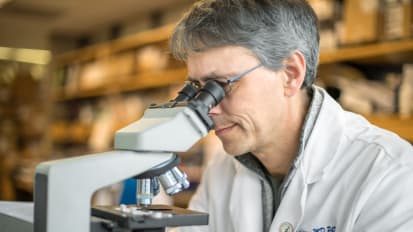 News
News
Can What Works to Treat Cancer Work for Diabetes?
To live with type 1 diabetes is to be ruled by relentless routine. Food must be carefully monitored, and the only treatment, subcutaneous insulin, is burdensome... Video
Video
Integrative Approaches to Symptom Management for Cancer Patients
This presentation from a variety of UCSF specialists covers a range of practical topics, from how clinicians can easily meet the new DEA educational requirement for opioid use disorder to the current evidence on mindfulness meditation's capacity to alleviate physical, psychosocial and even existential distress in cancer patients.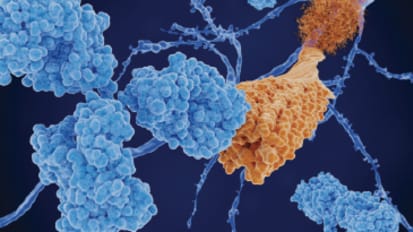 Document
Document
Cancer Immunotherapy Toxicity Evaluation (CITE) Program
UCSF Health’s new Cancer Immunotherapy Toxicity Evaluation (CITE) Program is a valuable resource for both patient care and provider consults. Video
Video
Erectile Dysfunction: Guide to Diagnosis and Complete Care for a Common Condition
This presentation from urologist John Lindsey, MD, lays out the numerous contributing factors as well as treatments for erectile dysfunction, which affects about 30 million men in U.S. but isn’t always discussed during regular checkups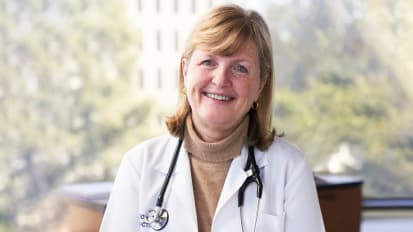 News
News
A Novel Approach Towards a Vaccine for Relapsing Acute Myeloid Leukemia: Q&A with Dr. Karin Gaensler
There is a major clinical unmet need for effective and safe therapies to increase progression-free and overall survival in older individuals with leukemia whose prognosis is grim. Video
Video
New Perspectives on Persistent Opioid Dependence: Reasons Patients Struggle, Routes to Better Care
Pain medicine specialist Chris R. Abrecht, MD, explains why the clinical focus on the physical pain of opioid withdrawal may be hampering effective treatment News
News
Robotically Assisted, Completely Minimally Invasive Whipple Surgery: Case Study With Video
Since performing San Francisco’s first pure robotically assisted Whipple procedure in 2022, UCSF surgeons continue to be on the forefront of this technology, regularly performing robotic Whipple surgeries (pancreatoduodenectomies) on select patients. News
News
UCSF Health Performs 150th Robotic Focal HIFU Procedure
UCSF is West Coast leader for the innovative, minimally invasive treatment for prostate cancer patients.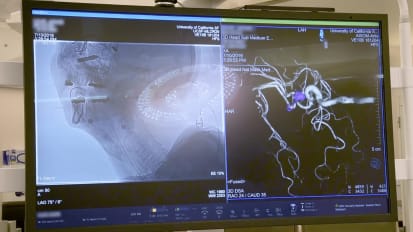 Video
Video
Treating Brain Aneurysms: How a Savvy Neurosurgical Team Individualizes Care
In this short video, vascular and endovascular surgeon Ethan Winkler, MD, PhD, explains the factors that go into determining the right treatment for different cases involving dangerously bulging blood vessels in the brain. News
News
New Research on Optimizing UC Management Through Patient-Centered Tofacitinib Dosing
Tofacitinib is effective for managing ulcerative colitis (UC) and is linked to sustained steroid-free remission. The product label recommends dose de-escalation after eight or 16 weeks, but is this best for patients? News
News
Deadly Dust: Engineered Stone Is Making California Workers Sick
Workers making artificial-stone slabs for the most popular type of countertops sold in the United States are developing a potentially deadly, irreversible lung disease from tiny particles of toxic dust, researchers from UC San Francisco and UCLA found... News
News
Millions of Long-Term Smokers Have Lung Disease that Defies Diagnosis
Millions of Americans with tobacco-related lung disease have symptoms that do not fit any existing tobacco-related disease criteria – including the most common of those, chronic obstructive pulmonary disease (COPD)... News
News
Novel Intraoperative Prostate Cancer Imaging Method Reveals Previously Undetectable Disease
UCSF researchers led the first-in-human study of a novel near-infrared fluorescence imaging agent that targets prostate-specific membrane antigen (PSMA). Document
Document
Neuroendovascular Surgery
The newly formed Neuroendovascular Surgery program at UCSF offers accessible, coordinated care for even the most complex vascular disorders of the central nervous system. News
News
UCSF Health Cancer Services Earns National Accreditation from the Commission on Cancer of the American College of Surgeons
The UCSF cancer program has been continuously accredited by the CoC since 1933, demonstrating its commitment to the best outcomes possible for its cancer patients. News
News
Does Hydrocortisone Improve Treatment of Septic Shock?
Sepsis is a global health priority affecting 55 million patients worldwide and causing 11 million deaths annually.

